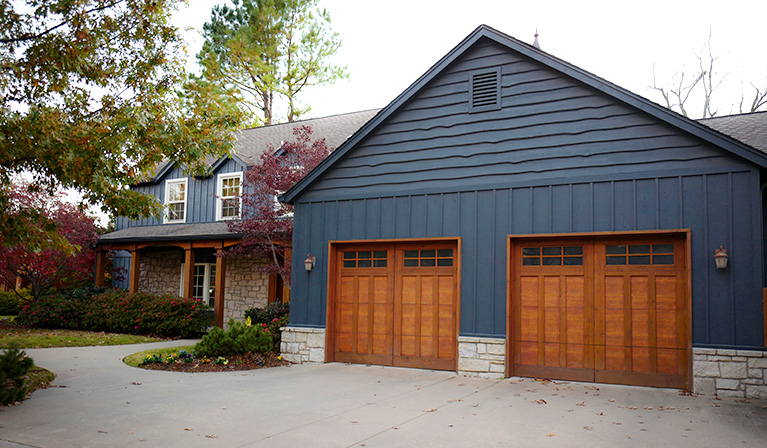
Although vinyl siding is a popular choice for budget-conscious homeowners, lots of people in the Tulsa area are deciding to ditch vinyl in favor of other options. It makes sense why vinyl is so tempting: it tends to be inexpensive, relatively easy to install, and pretty simple to maintain. However, every homeowner needs to weigh the drawbacks of vinyl siding against the savings before making a decision. Understanding the drawbacks of vinyl is exactly why so many Tulsa area homeowners are choosing something else altogether.
What are these drawbacks?
Issue #1: It’s Not as Durable As You’ve Heard
The first thing to know about vinyl is that its reputation for durability is complicated. Yes, vinyl does last a long time! However, vinyl’s lifespan is affected by all kinds of things. High temperatures can cause vinyl to warp. Rapidly changing temperatures can cause the material to crack from expansion and contraction.
If vinyl is hit by a rock thrown by the tire of a car or smacked by a child’s toy or struck by a patio umbrella on a windy day, the damage can’t just be repaired; the vinyl board itself must be replaced. Even just leaning a ladder against the house to replace a window or paint a piece of trim can cause major problems. Vinyl is also more flammable than other options, which is enough to make people hesitate before installing it.
Issue #2: It’s Not Maintenance-Free
Some people choose vinyl because they think it’s maintenance-free: something they don’t have to repair or worry about. However, that’s not really accurate, either. Vinyl needs to be powerwashed at least once a year to keep it looking clean, and sometimes it can be nearly impossible to remove mildew and other stains.
With vinyl, water can get into cracks in the siding, which allows moisture to build up where you can’t see it. This will cause damage that requires major repairs for your home, costing you a lot of money.
Issue #3: It’s Environmentally Problematic
One reason many homeowners are skipping vinyl altogether is a growing awareness of the environmental problems it causes. This is a material that is very difficult to recycle, leading many environmentally-conscious families to look for other options.
PVC, which is the material used to produce vinyl siding, is difficult to recycle. People who live near factories that engineer this material have raised concerns about the health risks that come from the manufacturing process.
Issue #4: It Doesn’t Add Value To Your Home
Unfortunately, vinyl siding can end up reducing the value of your home, especially if it has faded in color, the style you chose has quickly gone out of fashion, or potential buyers perceive the look of the house to be “cheap” or low quality. And although some people install vinyl because they think it will help with their energy bill, only the thickest and most expensive versions have any impact on your house’s energy use.
What are Your Alternatives?
In the Tulsa area, we recommend a fiber cement siding called James Hardie siding. Hardie siding is beautiful, durable, easy to maintain, and more environmentally friendly than vinyl. This material can be made to match any style and appearance, so it is extremely versatile! Tulsa Renew is the only James Hardie preferred contractor in Tulsa.
Tulsa Renew would be happy to come to your home to discuss your siding needs or concerns and give you a free, no-obligation quote. Schedule your free consultation using our easy appointment process!
